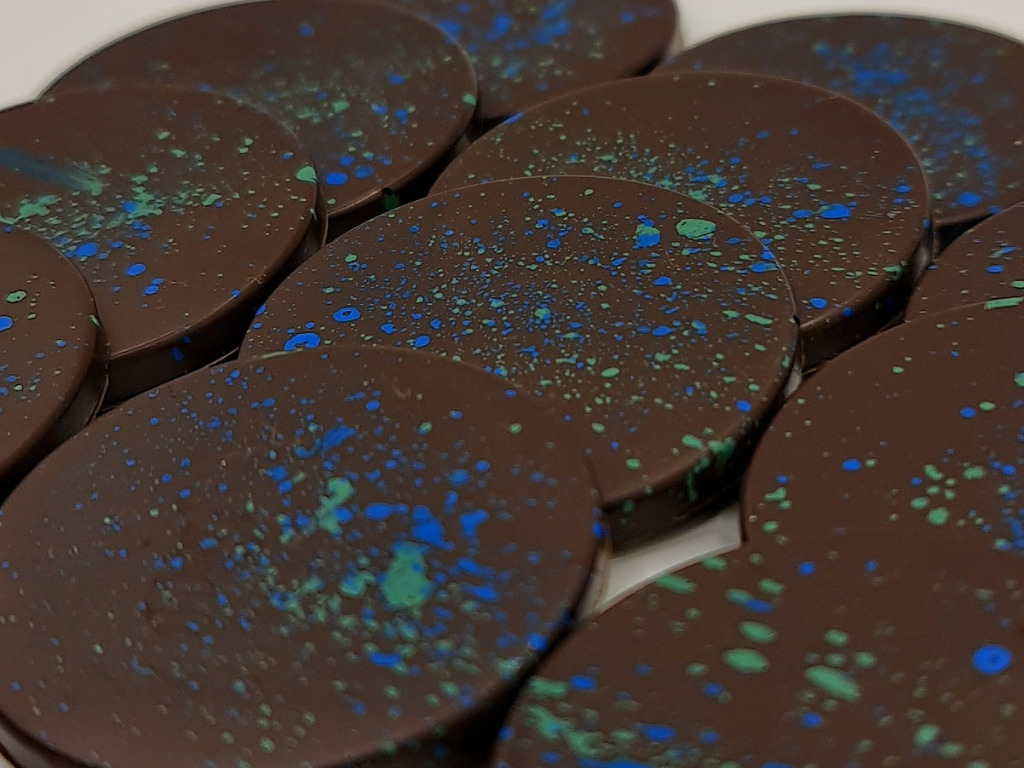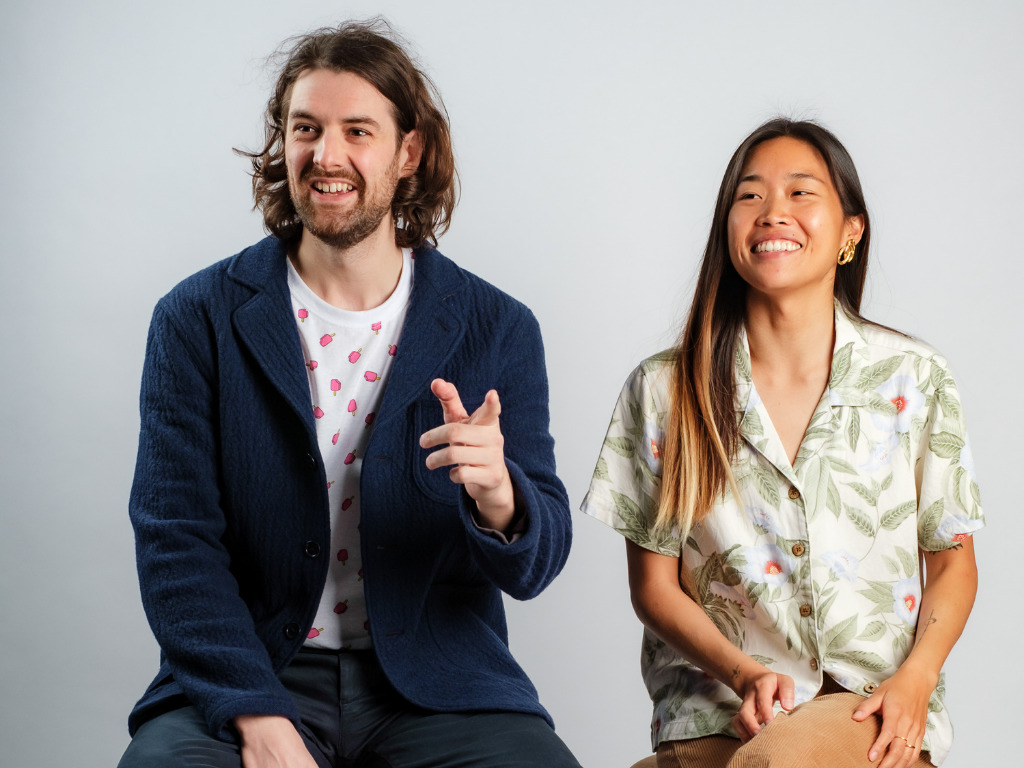WNWN Food Labs Debuting Cacao And Palm Oil-Free Ethical Chocolate On London Shelves
4 Mins Read
Chocolate without cacao might sound like science fiction but WNWN Food Labs is releasing its first dark variety this month and it says its product has 80% less emissions than convential chocolate. The startup wants to address what it considers to be critical problems across conventional chocolate’s supply chains, which include links to deforestation, child and slave labour, and farmer exploitation, as well as an over reliance on palm oil.
The company was co-founded by CEO Ahrum Pak and CTO Johnny Drain. Pak, a fermentation enthusiast who left a finance career to start WNWNW, grew up surrounded by home-fermented Korean foods. She eventually met Drain, a food consultant with a PhD in Materials Science who has worked with some of the world’s best restaurants and bars to help them go zero waste. Together they decided to tackle what they saw as one of the most ethically problematic foods.
“Chocolate has a truly dark side with more than a million child laborers estimated to work in Ivory Coast and Ghana, where three-quarters of the world’s cacao is grown, and more CO2 emissions pound for pound than cheese, lamb or chicken,” Drain said in a statement. “Using fermentation we’re able to create a suite of the same flavor compounds found in cacao. We can dial up certain aromas and even adjust the acidity to bring out notes found in premium single-origin chocolates.”
The U.K.-based WNWN, which closed a US$ 1 million pre-seed back in October of last year, is releasing dark alt-chocolate thins on a limited basis, beginning on May 18, and available for purchase via its website. The product relies on British barley and carob as its main building blocks and has been created using traditional fermentation techniques, which keep it connected to the heritage of its conventional counterpart.
According to WNWN, the thins were developed with the help of an in-house chocolatier and has “notes of sticky toffee pudding, dates, cherries, and a rich, buttery finish.” The company added that in blind tests alongside cacao-based dark chocolate, consumers said the products were “very similar.”

Why chocolate isn’t as sweet as it seems
Globally, the number of children trapped in slavery for the chocolate industry is thought to be 1.8 million. They are commonly aged between 10-15, though many are younger. Some work to support families and others are trafficked.
In addition to child and slave labour concerns, cacao farmers find themselves at the mercy of unscrupulous conglomerates buying their harvests. In 2016, global prices for cacao dropped by more than a third. This left many farmers unable to moderate how much they should be charging, resulting in poor returns. This has had an on-cost in terms of younger generations no longer being willing to enter the sector, due to no fiscal security.
Despite many big manufacturers signing up to the Harkin-Engel Protocol in 2001, to put an end to child labour, criticism has been levelled at the lack of meaningful progress.

An entirely new form of chocolate and an ethical industry
WNWN aims to be part of a movement that entirely eradicates exploitation, environmental impact, and unethical standards within food production. Unlike cacao-free innovators such as QOA and Voyage Foods, the company does not describe itself as molecularly identical to chocolate.
“Chocolate is complex and might feature several hundred taste and aroma compounds,” a spokesperson for WNWN told Green Queen. “Those flavour compounds emerge from fermentation of cacao pods and then roasting, and involve many intermediaries. Moreover no chocolate is the same. So the idea of a molecularly identical cacao or molecularly identical chocolate is a bit fuzzy.”
WNWN says that it won’t face any regulatory hurdles with its alt-chocolate. A spokesperson told Green Queen that as they use traditional fermentation, much like conventional chocolate production, their product is not considered a novel food and as such not subject to legal scrutiny, unlike cacao alternatives made using precision or biomass fermentation.
“We’ve been able to scale rapidly, due in part to the use of widely available ingredients and production methods that don’t require regulatory approval or expensive platforms,” Pak said in a statement. “As the first in the world to have a cacao-free chocolate product for sale, we can now begin building partnerships to supply brands with sustainable, ethically sourced ingredients.”
The company already has bars and bonbons in their pipeline, but chocolate is not the only ethically murky food WNWN wants to take on. The founders have their eye on othe pantry staples and daily foods whose supply chains are mired with issues from climate change to biodiversity loss and to labor exploitations. Next up: coffee, tea, and vanilla.
Lead photo by Caitlin Isola. All other photos by WNWN Food Labs.





